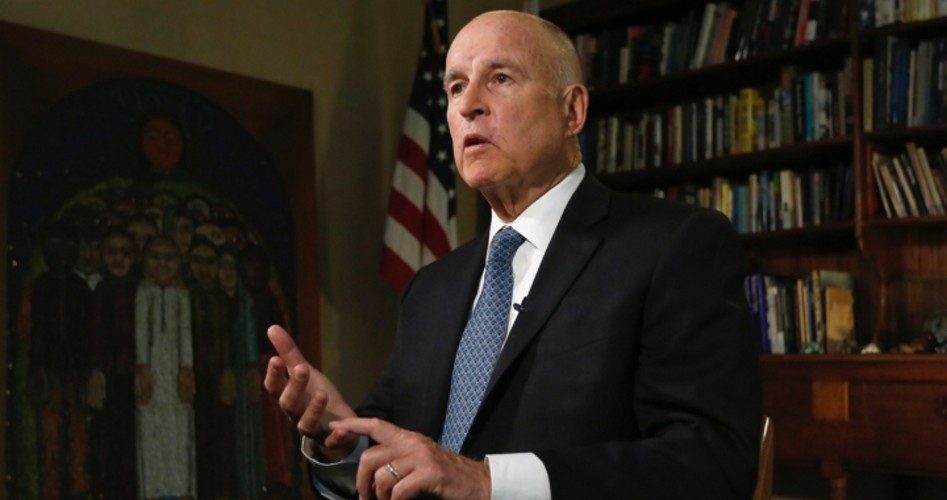
California’s Democratic Governor Jerry Brown (shown) vetoed a bill, SB 320, that would have mandated public universities in California to provide the abortion pill to students. Governor Brown justified the move to his base by stating that the average distance to abortion providers within campus vicinities was short enough to undermine the need for the bill.
Under SB 320, health centers at all 34 University of California and California State University campuses would have been required to provide the abortion pill RU-486 to students for medical abortions starting in 2022.
The bill’s author, Connie Leyva (D-Chino), defended the bill when it was introduced by arguing, “a woman should always have the right to decide when she incorporates a family into her life.”
According to the San Francisco Gate, medical abortions involve taking two pills over two days within the first 10 weeks of pregnancy to bring about a miscarriage. Chemical abortions differ from the morning-after pill in that the morning-after bill provides a high dose of a hormone found in birth control pills that either delay or prevent the release of an egg to avoid fertilization. By contrast, the medical abortion pill that would have been offered under SB 320 terminates a confirmed pregnancy.
Students at UC Berkeley had advocated for the bill after they failed to get the campus to provide the medication in 2016.
The Sacramento Bee reports that the bill would have required $9.6 million in private funding to provide a $200,000 grant to public universities. The Women’s Foundation of California and Tara Health Foundation pledged grants of $200,000 to the public university systems and another $200,000 to each of the campuses, which would have helped pay for staff training and after-hours services at UC and CSU campuses. The bill would also have provided a $200,000 grant to both university systems to provide 24-hour telephone patient support for students who received the abortion pill.
But Governor Brown observed that since the services provided under the bill were already “widely available,” he declared that the bill was ultimately “not necessary.”
He cited a study sponsored by the bill’s supporters that found the “average distance to abortion providers in campus communities varies from five to seven miles,” which Brown remarked was “not an unreasonable distance.”
It seems that the bill is dead for now, but Leyva has already stated that she intends to reintroduce the bill under the next governor.
“As the Trump Administration continues to unravel many of the critical health care protections and services for women, legislation such as this is urgently needed to make sure that Californians are able to access the full range of reproductive care regardless of where they may live,” Leyva said in a statement.
Brown’s veto is supported by pro-life groups such as Students for Life of America, which called SB 320 a “tragedy.” The group actively fought the bill, according to Pregnancy Help News, and toured campuses to publicize the dangers of chemical abortions.
Students for Life president Kristan Hawkins called Brown’s veto a “victory for all women, students, and taxpayers in California.”
“The pro-life generation will continue to fight against all efforts to bring dangerous abortion drugs to college campuses,” she added.
Catherine Glenn Foster, president and CEO of Americans United for Life, pointed out that the bill would have placed students in danger as “college health clinics are not equipped to handle the very serious risks of chemical abortion drugs.”
Jor-El Godsey, president of Heartbeat International, which runs Abortion Pill Rescue — comprised of more than 450 medical providers who offer Abortion Pill Reversal — celebrated Brown’s decision.
“Governor Brown undeniably made the right call on this invasive legislation,” Godsey said. “While we might disagree over abortion, it is important that the governor was able to recognize the extreme risk of government overreach and stop it in its tracks.”
Pro-life groups contend that the California legislature should instead consider bills that would provide aid to student mothers and fathers.
Andy Rivas, executive director of the California Catholic Conference, remarked, “Hopefully next session we can convince legislators to pass a bill that students and universities really need, one that provides financial support for students with children.”
If Governor Brown would have signed the bill into law, California would have become the first state in the country to require its public universities to offer abortion medication at campus clinics — a distinction that the left-wing state has avoided, at least for now.
Photo: AP Images


